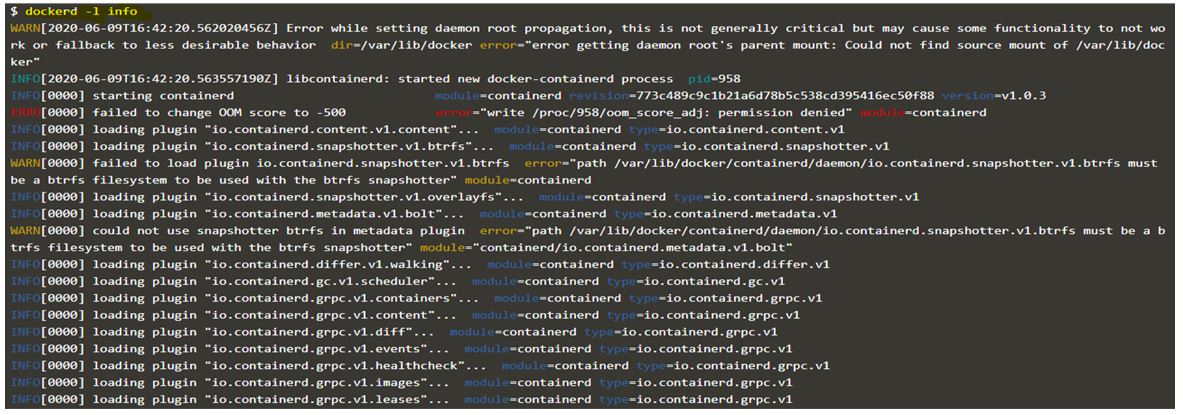

WHERE ARE DOCKER DAEMON LOGS DRIVER
You can see that we used the journald driver and it is exposed on port 8080. docker run -log-driver=journald -d -p 8080:80 nginx Please run the command below to start your Nginx container which will be running on port 8080.
WHERE ARE DOCKER DAEMON LOGS HOW TO
Since journald captures important metadata, we are going to demonstrate how to start a docker container using the jouranld logging driver and generate nginx server events to send them to Loggly.Īt this point, we assume that you have your journald-forwarder service running already. The journald logging driver forwards docker container logs to systemd which then forwards them to Loggly using the journald-forwarder service. You can forward your docker container logs to Loggly by using the journald docker logging driver. If you don’t see them, check the troubleshooting section below. Search Loggly over the recent past to find logs with the journald-loggly tag. To verify sending system logs run the command below. It will forward all the logs that are coming to journald. Now your service is started and set up to monitor the journald daemon. You can check the status of the service by running the command below and it must be active and running: sudo systemctl status rvice Now, copy and paste the following command in terminal to restart rvice: sudo systemctl start rvice Since the rvice changed on disk, you may have to run the command below to reload units: sudo systemctl daemon-reload : insert your customer token from the source setup page.Paste the content below content in the above created file: ĭescription=Forward journald logs to LogglyĮxecStartPre=-/bin/mkdir -pv /opt/loggly/journald-forwarderĮxecStartPre=-/usr/bin/curl -L -o /opt/loggly/journald-forwarder/journald-forwarder ĮxecStartPre=-/bin/chmod +x /opt/loggly/journald-forwarder/journald-forwarderĮxecStart=/opt/loggly/journald-forwarder/journald-forwarder -token -tag journald-loggly Please create a service file rvice under your /etc/systemd/system directory by running the command below: sudo vi rvice We are going to use a systemd service which will be responsible for collecting the journald daemon logs and forwarding them to Loggly without excluding all the attached metadata.

Note: This setup is supported by systemd so please ensure you are on the latest Linux distribution that supports systemd and systemctl commands to start/stop/restart the system services. For example, when docker is forwarding its logs to journald, the CONTAINER_ID and CONTAINER_NAME are captured, which is not the case with the syslog approach.

The journald to syslog to loggly approach is not optimal as it loses all the good metadata that journald contains. This setup is useful for those who want to bypass syslog altogether when sending their journald daemon logs or docker container logs using journald docker logging driver. The following instructions provide one scenario for sending logs to Loggly. In general, any method to send logs from a system or application to an external source can be adapted to send logs to Loggly. Loggly provides the infrastructure to aggregate and normalize log events so they are available to explore interactively, build visualizations, or create threshold-based alerting.


 0 kommentar(er)
0 kommentar(er)
